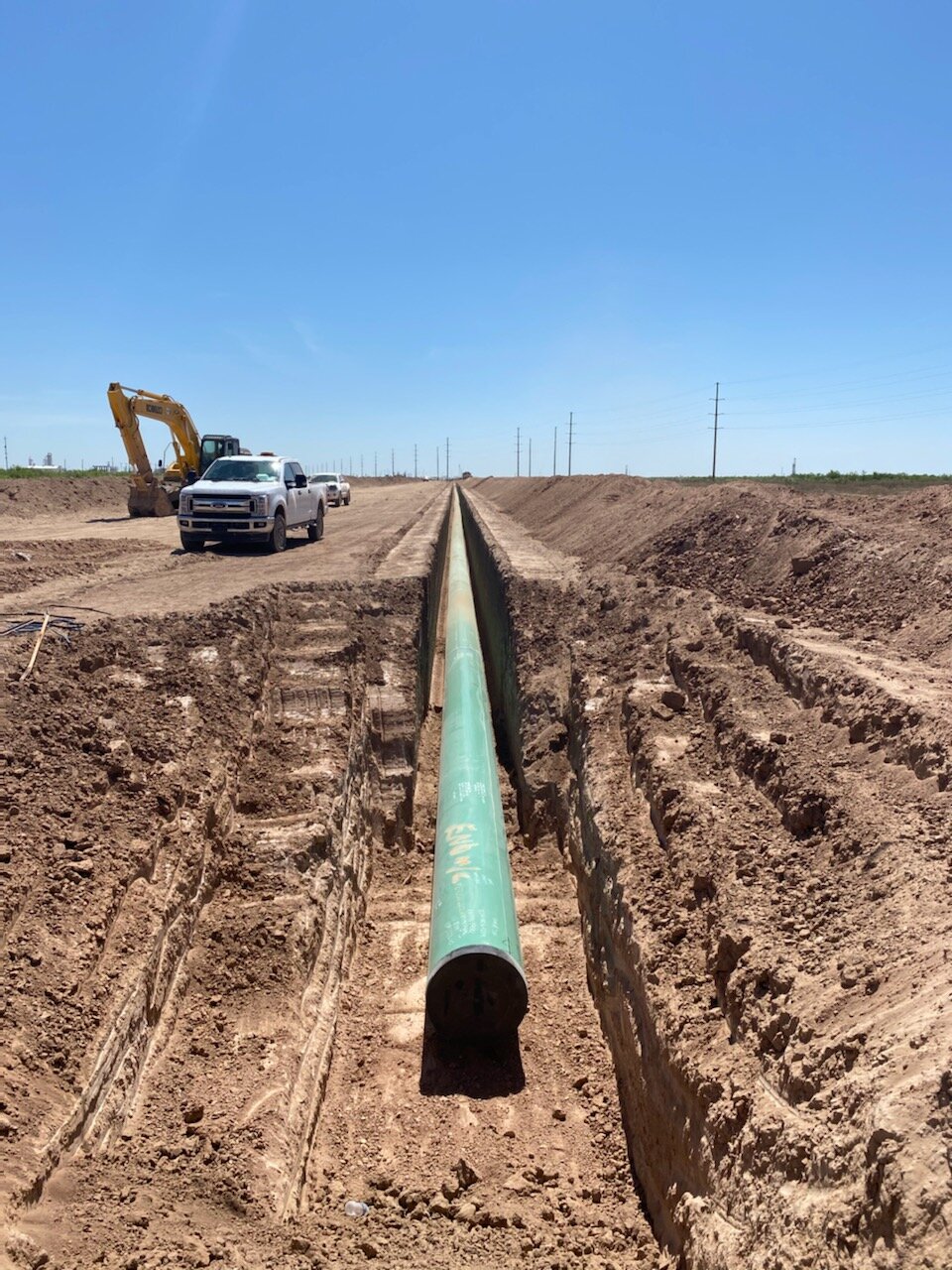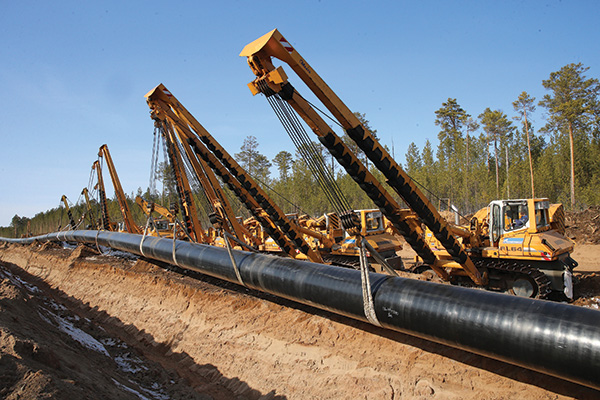Creek Pipe local contractor: Why regulatory alignment matter
Wiki Article
Comprehending the Secret Functions of Pipeline Services and Their Effect On Efficiency
Pipeline services play a vital function in various sectors, affecting functional efficiency significantly. Secret functions, such as sophisticated surveillance modern technologies and maintenance techniques, are crucial for reducing downtime. Furthermore, regulatory compliance assurances security and environmental management. The interplay between style, facilities, and financial factors can complicate these processes. Understanding how these components impact total efficiency raises important questions concerning best methods and future advancements in the area.The Role of Modern Technology in Pipeline Surveillance
As developments in innovation remain to develop, the value of reliable pipe tracking has actually come to be significantly apparent. Modern pipe systems depend on advanced tracking tools that improve functional effectiveness and safety and security. Technologies such as real-time information analytics, sensors, and drones offer operators with prompt insights into pipe conditions, enabling them to discover leakages, corrosion, and various other potential issues before they rise right into significant troubles.The integration of Web of Points (IoT) gadgets has actually transformed typical surveillance methods, allowing for continual monitoring and automated reporting. This proactive strategy not just minimizes dangers however likewise enhances upkeep timetables and resource appropriation. Furthermore, progressed software systems assist in information visualization and interpretation, encouraging decision-makers to react swiftly to abnormalities. Collectively, these technical technologies not only boost pipe integrity but likewise foster ecological stewardship by minimizing the possible effect of leakages and spills.
Maintenance Approaches for Boosted Effectiveness
Efficient upkeep approaches are necessary for optimizing pipe efficiency. Executing anticipating maintenance methods, sticking to routine assessment procedures, and developing durable emergency response strategies can considerably boost operational dependability. These approaches not only lessen downtime yet likewise add to the total safety and security and honesty of pipeline systems.Anticipating Upkeep Strategies
Predictive upkeep techniques are progressively acknowledged for their capacity to boost operational efficiency in pipeline services. By leveraging information analytics and checking modern technologies, these strategies enable operators to prepare for tools failings before they occur. This aggressive approach minimizes unintended downtime, lowers upkeep prices, and extends the lifespan of vital properties. Sensors and IoT tools play a crucial duty in accumulating real-time information, permitting the analysis of devices wellness and performance trends. Artificial intelligence formulas evaluate this information to recognize patterns and forecast prospective issues. Pipeline operators can set up upkeep activities throughout non-peak times, maximizing resource allocation and guaranteeing constant operation. Eventually, the adoption of predictive upkeep cultivates an extra reputable and reliable pipeline facilities.
Regular Inspection Protocols
Regular examination methods act as a keystone of maintenance techniques targeted at enhancing effectiveness in pipe procedures - Pipeline services Midland Texas. These procedures include systematic assessments of pipe honesty, focusing on identifying prospective concerns prior to they intensify. Normal inspections normally include visual evaluations, leakage discovery technologies, and stress monitoring to ensure peak performance. By adhering to well established routines, operators can identify rust, material wear, or blockage, thereby minimizing downtime and repair service expenses. Additionally, data collected throughout examinations can inform anticipating maintenance initiatives, permitting an aggressive strategy to pipe management. Inevitably, routine assessments not only expand the life expectancy of pipe facilities but additionally contribute to more secure and a lot more reputable transportation of sources, reinforcing general operational effectivenessEmergency Feedback Preparation
Emergency action planning is important for maintaining effectiveness in pipeline operations, making certain that operators are prepared to address unforeseen occurrences swiftly and efficiently. A well-structured emergency action strategy includes clear procedures, designated functions, and interaction techniques to alleviate risks related to pipeline failures. Routine drills and training improve team readiness and acquaint employees with emergency procedures. In addition, having readily available resources, such as spill control equipment and emergency get in touch with checklists, can significantly decrease action times. By incorporating real-time monitoring innovations, drivers can swiftly recognize and respond to issues, reducing ecological influence and functional downtime. Ultimately, a detailed emergency reaction plan not only safeguards assets and employees but also reinforces the overall performance of pipe services.Regulative Compliance and Safety Standards
Regulatory compliance and security requirements play an important function in the pipe solutions market. Creek Pipe local contractor. Complying with sector laws assures that business carry out efficient security protocols and take the chance of monitoring approaches. This dedication not only protects personnel and the setting yet likewise improves overall functional effectivenessCompliance With Sector Laws
Compliance with sector guidelines is crucial for making certain the security and efficiency of pipe operations. Regulatory structures, such as those developed by the Environmental Defense Company (EPA) and the Pipeline and Hazardous Materials Safety And Security Administration (PHMSA), set rigid criteria that drivers need to comply with. These policies cover numerous facets, consisting of pipe design, building and construction, maintenance, and monitoring, guaranteeing that systems operate securely and efficiently. Non-compliance can bring about serious charges, operational hold-ups, and environmental dangers. By adhering to these regulations, pipe companies not only protect public safety and security and the atmosphere yet also boost their operational performance. Ultimately, regulative conformity fosters trust fund among stakeholders, guaranteeing that pipe solutions can operate seamlessly in an affordable landscape while fulfilling legal commitments.
Safety And Security Protocol Application
Effective safety and security procedure application is a crucial element of pipeline operations, very closely linked to regulative compliance and safety and security requirements. Following these procedures not only ensures the security of personnel yet also safeguards the atmosphere and facilities. A durable safety framework consists of routine training, thorough inspections, and making use of suitable safety and security equipment. Organizations needs to stay attentive in updating their procedures to mirror modifications in guidelines and technological advancements. Conformity with well established safety criteria reduces the threat of mishaps and enhances functional performance. Additionally, a society of safety cultivates employee interaction and accountability, adding to general organizational success. Eventually, reliable safety procedure implementation is extremely important in maintaining the stability of pipe solutions and accomplishing lasting sustainability in operations.Danger Administration Approaches
Applying durable threat management techniques is essential for assuring that pipe procedures stick to governing needs and safety standards. Organizations should determine possible risks and evaluate dangers related to pipe tasks. This involves performing extensive examinations, making use of innovative surveillance modern technologies, and preserving compliance with market guidelines. Normal training for employees on safety and security protocols improves situational understanding and prepares teams to respond efficiently to emergency situations. Furthermore, developing backup strategies and performing drills can considerably alleviate dangers. Working together with regulatory bodies guarantees alignment with developing safety standards. By focusing on threat management, pipe solutions can boost click for info functional performance while securing both the atmosphere and public safety. Ultimately, a proactive strategy to run the risk of administration fosters a culture of safety and security within the market.Pipeline Style and Framework Considerations
Exactly how can the design and facilities of pipelines affect general operational efficiency? The setup of pipelines plays an important role in establishing their efficiency. Efficient layout reduces rubbing losses, hence lowering energy intake during liquid transport. Elements such as size, material choice, and layout straight impact circulation prices and upkeep demands.In addition, tactical positioning of valves and checking systems improves operational control and security. Midland oilfield pipeline services. Facilities factors to consider, consisting of ease of access for upkeep and repair, substantially affect downtime and total productivity
Incorporating advanced innovation for real-time surveillance facilitates prompt detection of leakages or inefficiencies, guaranteeing quick actions to concerns. The overall structural stability, affected by product resilience and ecological elements, additionally shapes long-lasting operational success. As a result, thoughtful style and durable infrastructure are important for taking full advantage of pipe performance, ultimately adding to the integrity and earnings of pipe solutions.
Ecological Effect and Sustainability Practices
While the demand for pipeline solutions proceeds to expand, understanding the ecological influence and embracing sustainability practices has actually come to be progressively vital. The building and operation of pipelines can notably affect ecosystems, wild animals habitats, and water sources. To minimize these effects, companies are applying sophisticated modern technologies and practices intended at minimizing emissions, protecting against spills, and lessening land interruption.
Sustainability campaigns commonly include utilizing eco-friendly materials, improving power effectiveness, and utilizing renewable resource sources to power operations. In addition, companies are progressively carrying out detailed ecological assessments before job initiation, making sure conformity with laws and stakeholder interaction.

Price Administration and Economic Consider Pipeline Providers
As the pipe market expands, efficient cost monitoring and link understanding financial elements become essential for keeping competitiveness. Companies encounter different financial pressures, including varying product expenses, labor expenses, and regulative conformity charges. To browse these difficulties, pipe provider must take on tactical economic planning and budgeting techniques.Buying technology can enhance functional efficiency, ultimately lowering costs with time. Additionally, effective project administration assurances that sources are allocated successfully, reducing hold-ups and unforeseen costs.

Market problems, such as demand for energy and geopolitical factors, likewise affect economic feasibility. Firms must remain active, readjusting their strategies in reaction to these outside elements.
Often Asked Inquiries
What Are the Various Sorts Of Pipeline Provider Available?
Various kinds of pipeline services include transportation, storage, maintenance, assessment, and fixing. Each solution plays a vital function in ensuring the smooth movement of products, boosting safety and security, and reducing operational disruptions across various sectors.How Usually Should Pipeline Inspections Be Carried Out?
Pipeline inspections should be performed on a regular basis, usually each to 3 years, relying on the type and problem of the pipe. Extra constant evaluations might be required for older or risky pipelines to ensure security and honesty.
What Are the Main Causes of Pipeline Failings?
The major reasons for pipeline failings include rust, faulty construction, product problems, exterior damage, leaks, and functional errors. Each aspect adds significantly to possible risks, highlighting the importance of normal upkeep and tracking for safety.Just How Can Firms Improve Pipeline Solution Integrity?
Business can enhance pipe service integrity by carrying out normal maintenance routines, making use of advanced tracking visit modern technologies, conducting thorough assessments, investing in worker training, and embracing proactive threat monitoring methods to prepare for and mitigate prospective failures.What Function Do Operators Play in Pipeline Providers?
Operators play a necessary duty in pipeline services by guaranteeing secure transportation, preserving devices, keeping an eye on system honesty, working with upkeep, and replying to emergencies. Their experience straight influences operational effectiveness and decreases disturbances in service shipment.Report this wiki page